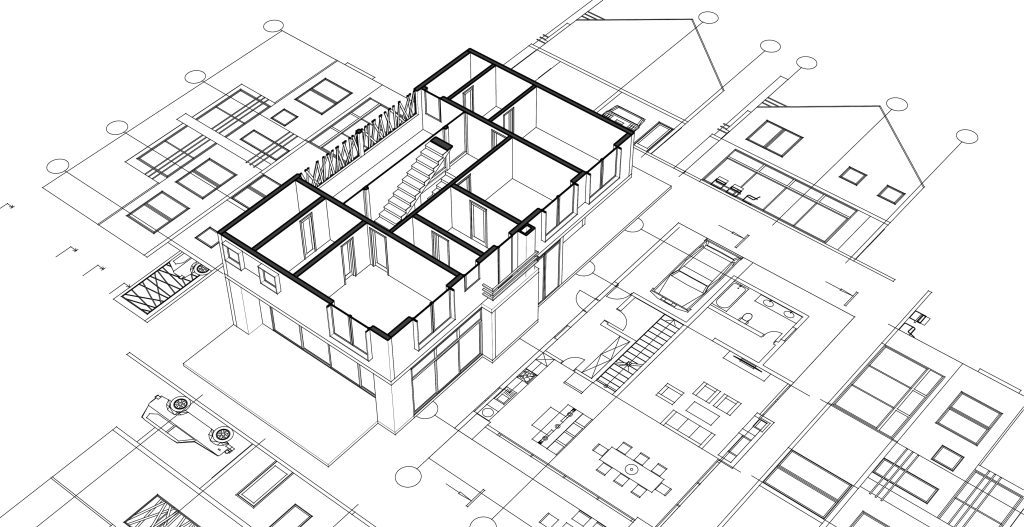What Are The Education Requirements for Aspiring Architects

The world around us is a testament to the creativity and vision of architects. These professionals play a pivotal role in designing and shaping our built environment. From towering skyscrapers to cozy homes, architects translate dreams into tangible structures that seamlessly blend functionality and aesthetics. If you’re considering a career in architecture, it’s essential to understand what is required to become an architect and the educational journey that lies ahead. In this comprehensive guide, we’ll explore the education requirements for aspiring architects, the different pathways to achieving your architectural dreams, and the steps you need to take to become a licensed architect in the US.
The Architectural Career: What to Know
Architects are the masterminds behind the structures that define our landscapes. They don’t just design buildings; they create experiences, turning empty spaces into vibrant, functional, and aesthetically pleasing structures that are a testament to human creativity. The architectural field demands creativity, technical prowess, and problem-solving skills. If you’re wondering if architecture is the right path for you, take the “Should I Be an Architect” quiz to get a clearer picture of your compatibility with this captivating profession.
Various Educational Pathways to Architecture
Architect qualifications require a solid educational foundation. You can take several pathways to achieve this goal, each with its unique advantages. A common route is pursuing a degree in architecture. This comprehensive program equips you with the necessary skills and knowledge to kickstart your architectural career. The typical duration for a bachelor’s degree in architecture ranges from four to five years.
Accreditation and Choosing a Program
When selecting an architecture program, accreditation is a crucial factor. Accredited programs ensure that you receive a quality education that meets industry standards and proper architect qualifications. The National Architectural Accrediting Board (NAAB) accredits most architecture programs in the US. Research and choose a program that aligns with your career goals and aspirations.
Bachelor’s Degree in Architecture
A Bachelor’s degree in Architecture provides a solid foundation in design, construction, and architectural theory for an architect career. You’ll dive into the architecture courses needed, like architectural history, building materials, structural systems, and design studios. This program typically spans four to five years and prepares you for various career opportunities, including architectural design, urban planning, and construction management.
Alternative Bachelor’s Degrees with a Path to Architecture
If you’re interested in architecture but prefer an alternative educational path, several related Bachelor’s degrees can still lead you to the architectural field. Degrees like Architectural Engineering, Environmental Design, and Interior Architecture provide a different angle to architectural concepts while equipping you with the necessary skills to work alongside architects.
Master’s Degree in Architecture
A Master’s degree in Architecture allows for specialization and a deeper dive into architectural concepts. You can choose from various focus areas, such as sustainable design, urban planning, or historic preservation. This advanced degree enhances your expertise and opens doors to higher-level positions within the architectural field.
Architectural Internships and Experience
Practicing practical experience is vital to your journey toward becoming an architect. The Intern Development Program (IDP), now known as the Architectural Experience Program (AXP), provides hands-on experience in various aspects of architecture, from schematic design to construction administration. Completing AXP hours enriches your knowledge and sets you on the path to becoming a licensed architect.
Internships during your academic journey offer invaluable insights into the practical side of architecture. They allow you to apply theoretical knowledge to real-world projects and build essential professional relationships while exploring the professional requirements for architects.
Required Skills and Abilities in Architecture
Becoming a successful architect requires a diverse skill set. Technical skills, including proficiency in architectural software like AutoCAD and Revit, are essential.
- Strong drafting and design skills lay the foundation for turning concepts into blueprints.
- Creativity and design sensibility are your tools for envisioning captivating structures. Your portfolio showcases your ability to blend aesthetics and functionality seamlessly.
- Effective communication skills are pivotal. As an architect, you’ll collaborate with clients, contractors, and stakeholders, presenting and defending your design ideas convincingly.
- Problem-solving and critical thinking are second nature to architects. Addressing challenges, analyzing site constraints and opportunities, and finding innovative solutions are all part of your daily routine.
Architectural Licensing Requirements
Becoming a licensed architect is the culmination of your educational journey. The National Council of Architectural Registration Boards (NCARB) is the organization responsible for regulating architectural licensure in the US. The Architect Registration Examination (ARE) assesses your knowledge and skills across various architectural practice areas.
Before applying for licensure, reviewing and meeting state-specific requirements is crucial. Each state has its own set of prerequisites for architectural licensure. For a personalized understanding, explore the licensing requirements outlined by NCARB.
Continuing Education and Professional Development
The journey of learning continues even after becoming a licensed architect. Architecture is a field that constantly evolves with new technologies, materials, and design philosophies. Maintaining your architectural license requires ongoing continuing education to ensure you stay up-to-date with industry advancements.
Pursue Your Passion for Architecture
Architecture is more than just buildings; it’s the fusion of art, science, and ingenuity. Aspiring architects have a remarkable journey ahead of them, filled with creativity, learning, and growth. By understanding the educational requirements, pathways, and necessary skills, you’re well-equipped to embark on this exciting career. Whether drawn to the drawing board or captivated by construction, the architectural field offers a canvas for your dreams to come alive.
The steps to becoming an architect may have challenges, but it is a fulfilling endeavor that grants you the power to shape the world around you. By completing the proper educational and professional requirements for architects and obtaining your license, you embark on a journey that offers endless opportunities for creativity, innovation, and positive impact. If you’re passionate about architecture, seize the chance to make your mark on the world and contribute to the built environment.
At Schaub Projects Architecture + Design, we are always looking for talented architects and designers to help support our clients. Meet our team and discover why our experience, creativity, and values have placed our firm in high demand, and explore our available career offerings today.

